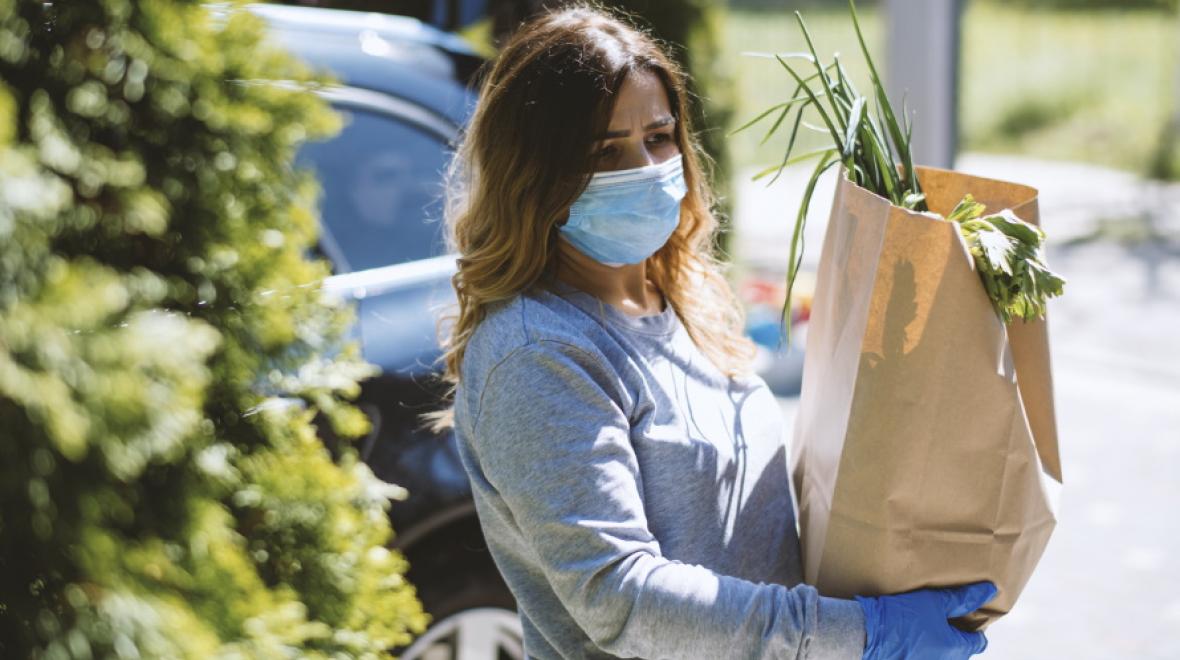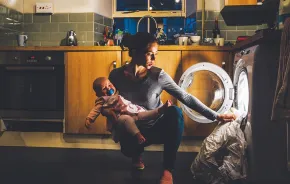
As we approach the last days of school, a large question looms for families: What the heck are we going to do this summer?
Yes, some camps will be open, and some child-care centers. Yes, counties are starting to open up. We will be able to walk and bike more, to meet in small gatherings with masks, to interact a bit more. But for many of us, the calendar pages are still largely blank.
Here’s one idea to add to the mix: Figure out a way for your family to regularly give back to others.
In a time when families are feeling so much pressure — juggling work from home while caring for kids, plus isolation, plus other stresses — why might this be a priority? First, of course, it helps you involve your kids in being part of the solution — to injustice, to isolation, to inequities, to fear.
Another reason is that it might make you happier. As noted by Laurie Santos, a professor of psychology at Yale University, in one of her recent Happiness Lab podcast episodes, studies that are controlled for income level show that happy people tend to give more and volunteer more. Giving to others trumps self-care when it comes to happiness.
Here are six ideas; they are by no means exhaustive. It’s a start, and hopefully a spark. Please add your ideas in the comments so we can all learn from, and be inspired from, each other.
Protest.
Historic protests in solidarity with Black Lives Matters, police reform and anti-racism are leading to change in opinion and policy in real-time. Find a family-friendly protest on the ParentMap calendar or social media. Or start your own corner protest. Get the kids working on yard signs (see here and here and here for ideas) and look at Black Lives Matter Seattle – King County’s tips for attending safely. If you’re not comfortable attending — we are still in a pandemic — plop signs in the grass for an ongoing demonstration. You can also donate supplies, donate funds or write for political action (see below). Learn about the issues through ParentMap’s anti-racism resources.
Write letters.
One summer when I was a kid, my dad would sit us down one night a week for a letter-writing session: I famously wrote a postcard to my grandmother detailing not only all the swimming I did, but also the two warts on my fingers that just fell off. My little family (we have one 10-year-old) is also starting a weekly letter-writing habit this summer. Beyond writing to friends and family, we are penning missives to residents of a local nursing home; a 12-year-old neighbor did the work of connecting with a local facility, and we will drop off cards to deliver. Call one in your community to see if you can drop off or mail letters or cards; you can also join an organized letter drive, such as the Love Letters to the Elderly project that includes handwritten cards in food bags picked up by seniors associated with the North Shore Senior Center. Or write a love letter to Chinatown International District through a Wing Luke Museum project to help a community that has suffered a great deal during the pandemic.
Another type of letter (or email!) to work on this summer is letters of political action. Teach your kids to make their voices heard on issues of the day (Alpha Mom blog has a good template for them). Find scripts, ideas and sources at websites such as the Americans of Conscience Checklist, Campaign Zero and Black Lives Matter Seattle – King County.
Buy and deliver.
In our era of social distancing, opportunities abound to buy and deliver food and supplies to people who are homebound and in need. As volunteer opportunities go, this is relatively straightforward, and can involve car time with kids — the perfect spot for a conversation about why you’re doing what you’re doing. Just in my community, we’ve found several opportunities to deliver, such as doing no-contact drop-offs to families from our school’s Honor Pantry. United Way King County lists a number of delivering volunteer opportunities; volunteers do need to be age 10 and older and to have their own PPE. Many food banks (such as North Helpline in my northeast Seattle neighborhood, or Food Lifeline) need volunteers to prepare, sort and deliver food and other supplies. You can even deliver pet supplies. (Some places have a minimum age for volunteering, with or without a parent.) Or find a local Little Free Pantry and help keep it stocked.
Seattle Together, a citywide initiative to provide ideas and tools for connecting neighbors, also lists a number of volunteer delivery opportunities on its website, in the Participation section.
Foster a critter.
With many families at home, there’s never been a better time to foster a pet. And if your kids have been pleading for a cat or dog, fostering can be a good way to test the waters of ownership. You can apply to be a foster family through foster-only rescues such as Red Waggin' Rescue or Seattle Feline Rescue; you can also check with larger shelters such as Seattle Humane. One caveat: You will have competition, as during the pandemic, more people are stepping up to foster and adopt, and pets that are child-friendly are most in demand. In the case of fostering a dog, families who have a large fenced yard, lots of experience with dogs and older kids will have a better shot.
Make.
What’s more satisfying than making an actual thing that people really need? If you have a child with an interest in the sewing arts, making masks is an obvious way to pitch in. Make masks for neighbors, for protesters, for friends. Little Free Libraries are becoming a center for mask distribution. You could also sew masks for Bloodworks Northwest, or donate your creations to Lt. Gov. Cyrus Habib’s mask challenge.
Learn and give.
If you have funds to spare, one of the most effective ways to give back is to donate. Figure out how much your family can give over the summer and have your kids help research organizations and causes. Some places to start: Any of the nonprofits listed above; the COVID-19 Survival Fund for the People; Seattle Together’s list of many local causes, from a farmer fund to gratitude meals for first responders; Charity Navigator’s comprehensive list of nonprofits in the civil liberties space. Support Black women running for office by donating to Black Women Lead WA; support protestors by donating to the BLM King County Seattle bail fund. The Seattle Times has a comprehensive list of organizations helping those affected by the coronavirus. You can also — often through Amazon Wish Lists — purchase goods for nonprofits such as YouthCare, which works with youths experiencing homelessness and can no longer accept donations of used goods.











